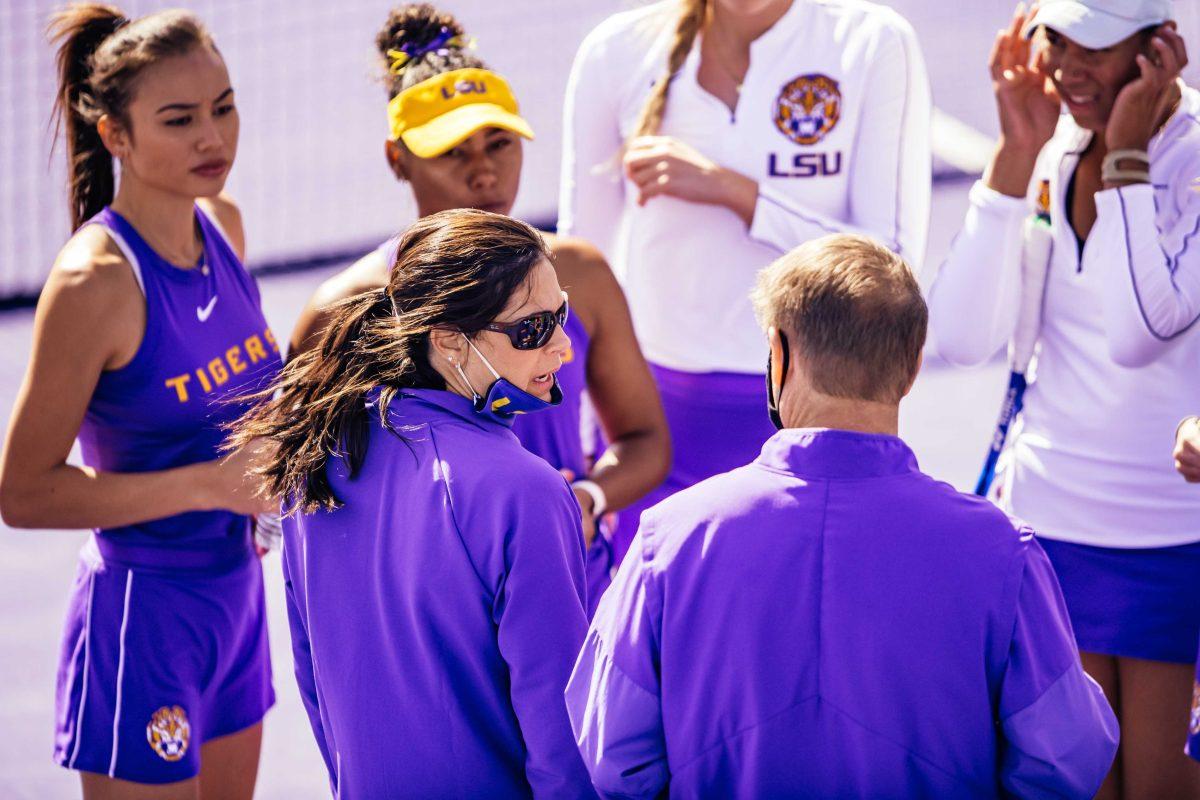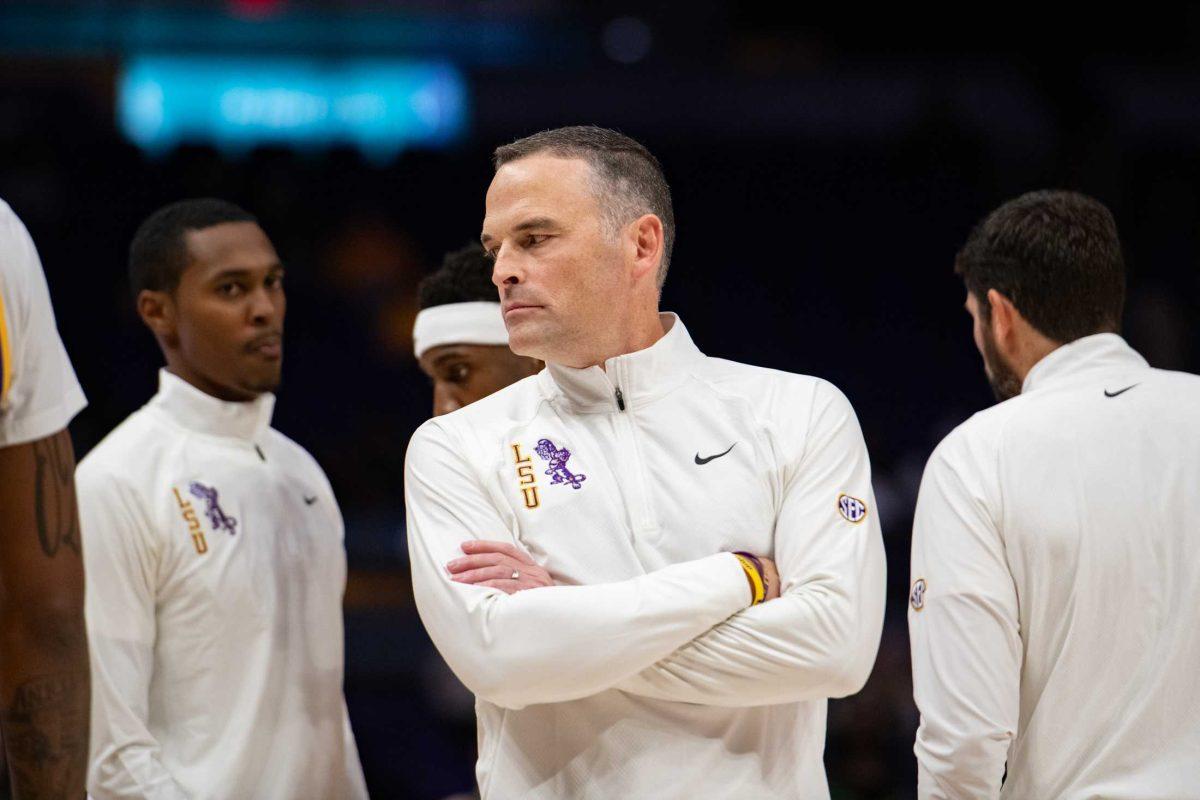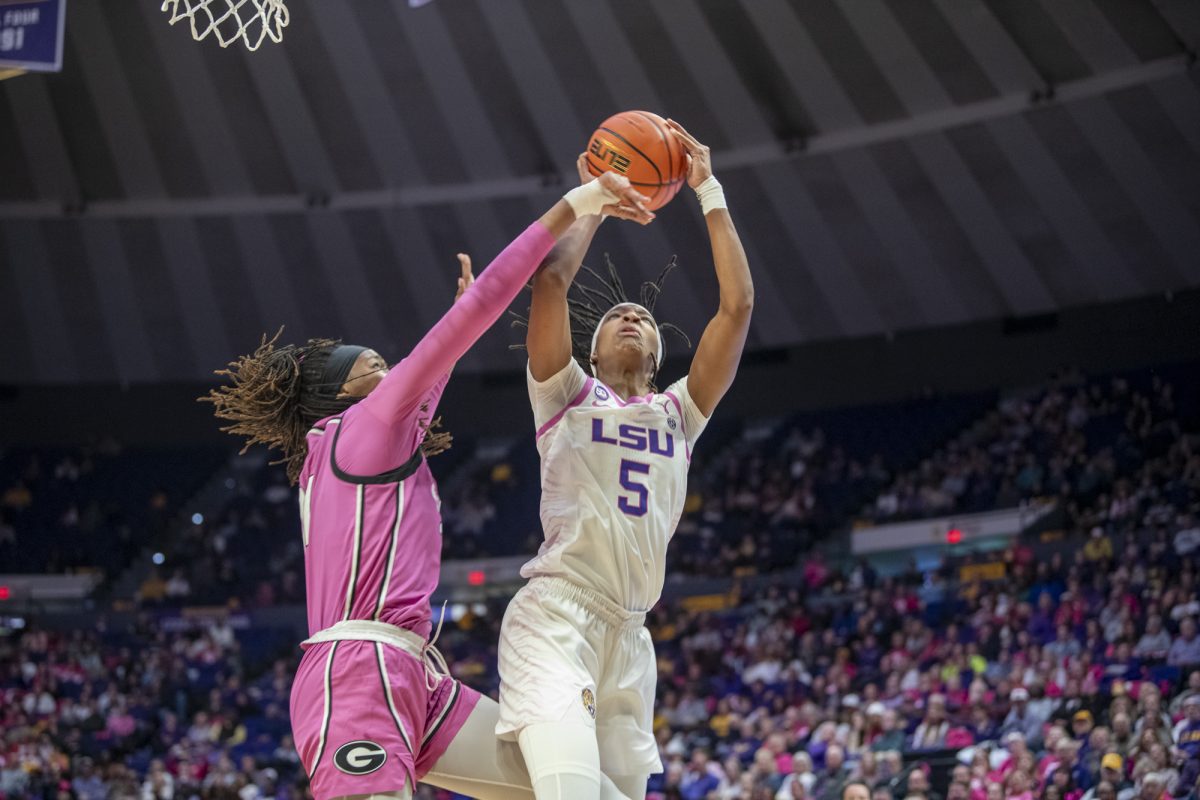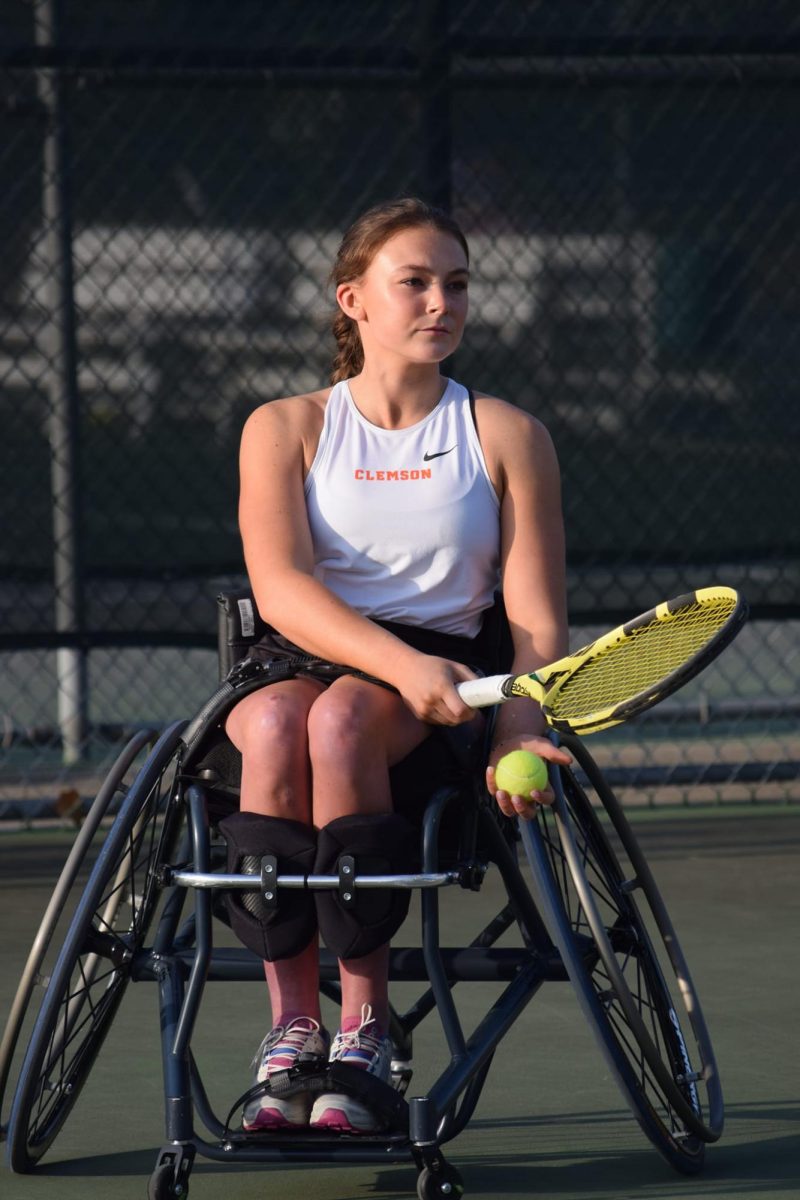One of the most important things to do when helping and showing support to victims of abuse is to make them feel safe, tell their stories and believe them. LSU has failed to do that on countless occasions, choosing to either protect or poorly punish the accused or not hold accountable the higher-ups that denied these victims’ stories.
Such is the case with Julia and Mike Sell in the cases regarding Jade Lewis and another anonymous victim mentioned in the Husch Blackwell report.
Before the USA Today article that boosted LSU’s infamy surrounding their dealings with abuse, the Sells had a strong reputation bolstered by their transforming a losing women’s tennis program into a competitive one. They turned a team that had four straight losing seasons from 2009 to 2013 into one that hasn’t had one since, behind strong recruitment featuring an array of future All-Americans.
But it would be surprising if their recruitment remained at the same level after all of the allegations that have been made against them.
The USA Today article published in November features accusations that the Sells were told about multiple cases of abuse and didn’t believe the victims or do anything about it. A month later, the Reveille posted an in-depth article against the Sells that added bullying, picking favorites and others to the list of the accusations against them.
Husch Blackwell investigated the claims made in the USA Today article and released his report on them at the beginning of March. Though the firm ultimately concluded that the evidence couldn’t prove the validity of some of the accusations, they weren’t debunked either.
This was due to a lot of the conversations being between two people without witnesses, so it’s important to keep two things in mind.
One, no one truly knows what was said within these conversations except for the people involved. Each person has a very different story surrounding what was discussed, which turns this into a ‘he said, she said’ situation.
Two, for the people who spoke with the Sells and claim that they blew them off, there would have to be motive if they were to lie about it. This was mentioned briefly in Blackwell’s report and is relevant because motive is the only valid explanation for any of the people who spoke with the Sells to lie about something like this in regards to their loved ones.
There are a lot of relevant conversations to focus on, but the ones that are covered here are the ones regarding Jade Lewis‘ father and the father of an anonymous player (Complainant 2). These will be briefly summarized, so if you’re looking for more details, the report is on LSU Sports’ website.
The claims of both fathers described one-on-one discussions with each of the Sells. Lewis’s father claims that he discussed Drake Davis’s abuse of Jade Lewis with Michael Sell on the phone on two occasions, and Complainant 2’s father claims (with witnesses) that he spoke with Julia Sell in person, thanking her for bringing his daughter to rehab and telling her that Derrius Guice raped the complainant.
According to both fathers, neither of them were believed, with Julia Sell outright calling the victim a liar. It’s also worth mentioning that each parent never spoke to them again after these conversations, offering further implications of the emotions surrounding the coaches’ responses.
Though Lewis’ father’s claims had inconsistencies that led to it being questionable whether or not the discussions regarding Davis happened, the claims of the second father had none.
There were witnesses that could prove they spoke with each other and witnesses that saw the distraught expression on the father’s face after the consultation was over. There’s also the glaring fact that was mentioned earlier: he met with her because he was grateful that she drove his daughter to rehab and showed her support.
If something like this wasn’t said to him, the father of the second complainant would likely have a positive opinion of the Sells and would probably be defending them. Sell also immediately reported what was said in the conversation to Title IX, which proves that the assault of the complainant was mentioned.
If this is true (which will never be proven unless Sell were to confess), it is inhumane and sickening. To seek help for a loved one from someone you expect to do the right thing and have them metaphorically spit in you and the victim’s face is unimaginable.
And inhumane is a characteristic that reasonably describes what Julia Sell has been accused of by some of her former players that were published in a Reveille article in December.
In a list of accusations towards players that could take a while, there’s: homophobia, weight shaming, compulsively lying, picking favorites and dividing the team and ultimately, being cold, discriminative and unsupportive towards players that weren’t her favorites and intentionally making practice and training more dreadful for them.
Though these accusations haven’t been investigated, this wasn’t just one or two players that made these claims, it was seven.
Seven. Seven former players and a parent came forward to recount what they remember about Julia Sell. Bear in mind, this is a tennis team, so rosters are typically limited to about ten players at the most, so that is a large sample size from just a few years.
A team’s environment should be a supportive and trusting one, where the players don’t dread attending practice or events, and if they need to consult someone about anything, they can expect to be able to talk to their coaches and teammates and get a supportive and honest response.
A team that is divided and operates under harsh treatment like this is a lot less likely to offer that.
To hear from your loved ones that people you trusted to help and support you didn’t believe you and called you a liar is unimaginably devastating. To be excited to be a part of a team you dreamed of being on and having a coach crush your imagination of it is equally as devastating.
These accusations should not be ignored by the University, as there’s a strong chance it will make victims of abuse and harsh treatment less likely to tell their stories. The best message they can send is to show that accusations of this regard are taken seriously and that arbitrators of these actions and non-actions will be held accountable.









